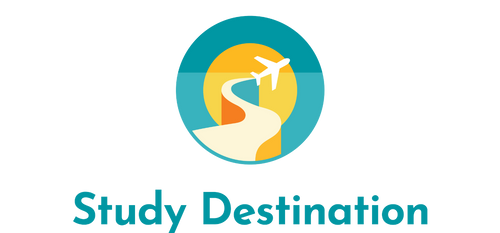Studying in Canada is a dream for many international students, but understanding the visa process is key to making that dream a reality. With the right preparation, applying for your Canadian Study Permit can be a smooth and straightforward process. Here's everything you need to know to get started.
Understanding the Canadian Study Permit 🎓
A Study Permit is not just a visa—it’s your ticket to study legally in Canada. This essential document allows you to pursue education at an approved Designated Learning Institution (DLI). Whether you’re enrolling in a short-term English course or a multi-year degree program, understanding the permit requirements is crucial.
Who Needs a Study Permit? ✅
Not all students need a Study Permit. Here’s a quick guide:
-
Yes, you need a Study Permit if:
- Your program is longer than six months.
- You want to work part-time during your studies or apply for post-graduation opportunities.
-
No, you don’t need a Study Permit if:
- Your course is six months or less. In this case, you can enter Canada on a Visitor Visa (Temporary Resident Visa).
Study Permit
Visitor Visa (Temporary Resident Visa) ✈️
Post-Graduation Work Permit (PGWP) 💼
How to Apply for a Study Permit in Canada🛂
Applying for a Canadian Study Permit is straightforward if you follow these steps:
Step 1: Get Accepted by a Designated Learning Institution (DLI) 📘
Ensure your chosen college or university is a DLI approved to host international students. Your acceptance letter is mandatory for your application.
Step 2: Gather Required Documents 🗂️
You’ll need:
- A valid passport
- Acceptance letter from a DLI
- Proof of financial support
- Passport-sized photos
- A completed application form
- Any additional documents based on your country of origin (e.g., medical exams or police certificates)
Step 3: Submit Your Application Online 💻
- Create an account on the Government of Canada’s immigration website and upload your documents.
- Pay the application fee (CAD 150) online.
Step 4: Provide Biometrics and Attend an Interview (If Required) 👆
- Some countries require biometrics (fingerprints and photo) as part of the application process. You may also be called for an interview at your local visa office.
Step 5: Wait for Approval ⏳
- Processing times vary but usually range from 4 to 12 weeks. Check the estimated time for your country on Canada’s immigration website.
Financial Support for your Canadian Study Permit
You must demonstrate that you can support yourself and your accompanying family members while in Canada. You can prove you have financial resources by providing:
- either proof of a bank account in Canada in your name, if you transferred money to Canada;
- or a guaranteed investment certificate (GIC) from a participating Canadian financial institution;
- or proof of a student loan or study loan issued by a bank;
- or your bank statements from the last 4 months;
- or a bank draft that can be converted to Canadian dollars;
- or proof that you have paid tuition and living expenses;
- or a letter from the person or school providing you with the funds;
- or proof of funds paid to Canada, if you have a scholarship or are part of a Canada-funded study program.
New amounts starting January 1, 2024:
Applicants must additionally demonstrate the cost of their studies and ticket: $1,720 CAD for each month of stay or $20,635 CAD if staying for 1 year or more. This amount does not apply if you are studying in the province of Quebec*. If you are traveling with your partner, you must demonstrate $25,690 CAD; if you are traveling with your partner and 1 child, $31,583 CAD; or if you are traveling with your partner and 2 children, $38,346 CAD. You can visit this link from the Government of Canada for more information.
Can You Work with a Study Permit in Canada? 💼
Yes! One of the great benefits of studying in Canada is that international students can work while studying:
- On-Campus Jobs: Work at your institution without a work permit.
- Off-Campus Jobs: Work up to 20 hours per week during school terms and full-time during scheduled breaks.
- Co-op and Internship Programs: If your program includes a mandatory work placement, you’ll need a separate Co-op Work Permit.
IMPORTANT: You will not be able to work in Canada if you study a language course.
Visa Extensions and Post-Graduation Options 🛠️
Extending Your Study Permit 📄
If your course is extended or you plan to pursue further studies, apply to extend your Study Permit before it expires.
Transition to Post-Graduation Work Permit (PGWP) 💼
Graduates of eligible Canadian programs can apply for a PGWP, which allows them to gain valuable work experience and build pathways toward permanent residency.
Ready to Begin Your Canadian Journey? 🌟
Applying for a Canadian Study Permit may seem daunting, but with the right preparation and support, it’s a straightforward process. Let Study Destination guide you every step of the way, ensuring your dream of studying in Canada becomes a reality.
FAQs about Canada's Visas
How much does it cost to apply for a Study Permit?
The application fee is CAD 150, with an additional CAD 85 for biometrics if required.
Can I travel outside Canada with a Study Permit?
Yes, but you’ll need a valid Visitor Visa (TRV) or Electronic Travel Authorisation (eTA) to re-enter Canada.
Can I bring my family with me?
Yes, many Study Permit holders can bring their spouse, common-law partner, and/or dependent children. Spouses may also apply for an open work permit, allowing them to work in Canada.
Do I need health insurance while studying in Canada?
Yes, health insurance is mandatory. The coverage depends on your province, and some schools include insurance in their fees. Make sure you have coverage before arriving in Canada.
Is there an age limit for applying?
No, Canada has no specific age limit for student visas. However, you must demonstrate that you’re pursuing studies for legitimate reasons.
What if my Canadian Student Visa is denied?
You can reapply after addressing the reason for denial, which will be provided in your refusal letter.
What is the main reason for Canada visa rejection?
The top reasons for Canadian visa rejections include:
- Insufficient Financial Proof: Failing to demonstrate enough funds to support yourself during your studies.
- Inadequate Study Plan: If your course choice doesn’t align with your academic or career background.
- Lack of Intent to Leave Canada: Not showing sufficient ties to your home country, such as family, job, or property.
- Incomplete Documentation: Missing or incorrect paperwork can result in automatic denial.
Can I work in Canada if I study a language course?
No, students enrolled exclusively in language programs (English or French courses) are not permitted to work during their studies. To qualify for work permissions, you must enrol in a program beyond language learning, such as a vocational, co-op, or academic program.


